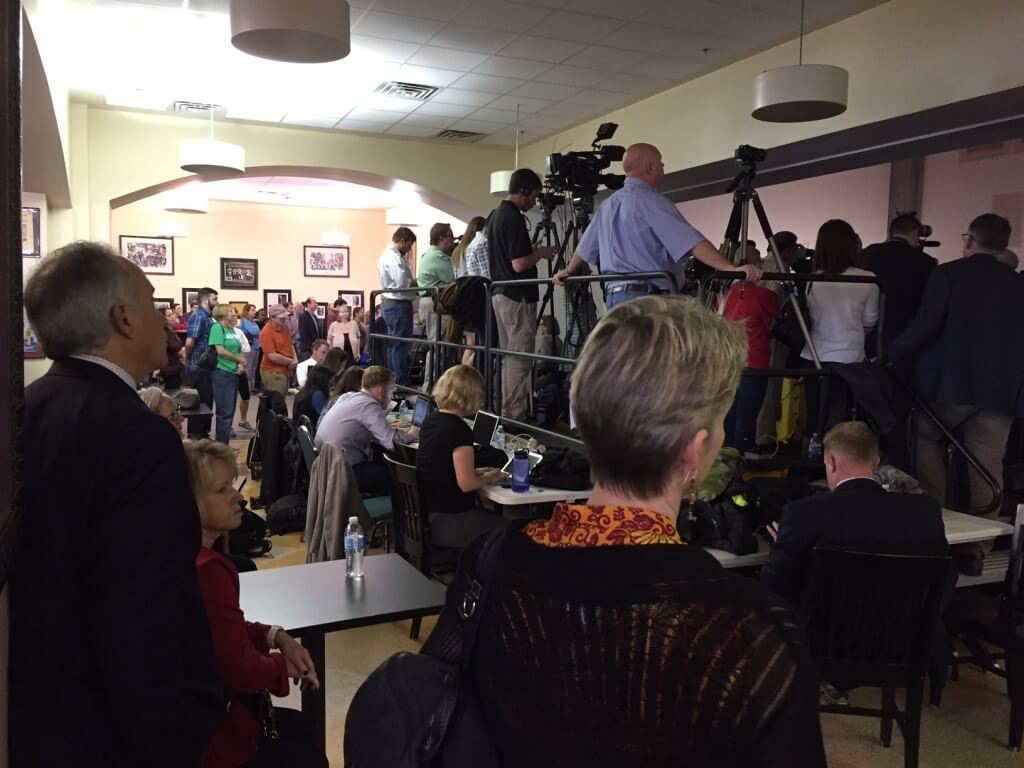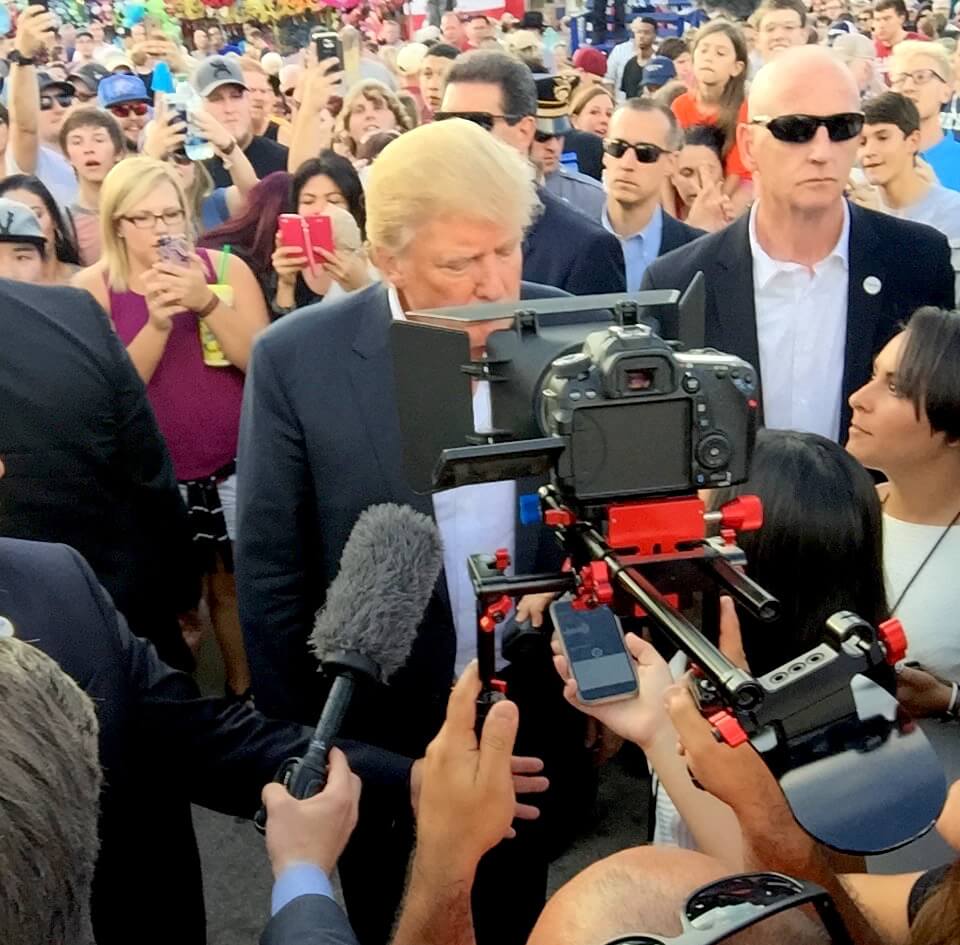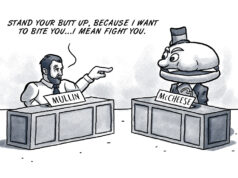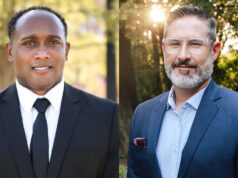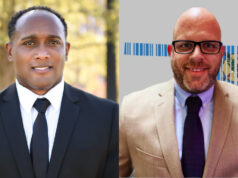TULSA — Hillary Clinton told an energetic Oklahoma Jazz Hall of Fame crowd on Friday that the state of Oklahoma should expand Medicaid to help the working poor.
As Clinton’s speech concluded, former Oklahoma Gov. David Walters told me the same thing.
“The ridiculous position of radical right Republicans to oppose the Medicaid expansion is so immoral in that it denies 200,000 people health care in Oklahoma for the reason only that they don’t like the president,” said Walters, a member of Clinton’s Oklahoma leadership team. “And so, how they look in the eyes of those people and deny them health care for that reason, I just don’t know. And obviously she’s going to be a strong leader in that regard, and eventually Oklahoma is going to come around, I’m convinced.”
What Oklahoma likely won’t come around to — en masse and in the general election — is giving its electoral votes to a Democrat, be it Clinton or her chief primary challenger, Sen. Bernie Sanders.
But that’s not all a state can offer a candidate.
A November Sooner Poll showed Clinton leading Bernie Sanders in Oklahoma’s Democratic primary by about 46 percent to 12 percent. A whopping 39 percent of likely voters were undecided, but the state is one Clinton’s team will count on in the primary.
“I haven’t made my choice, but I’m very open to Hillary,” said Regan Robertson, a Tulsa native in her 20s, prior to Clinton’s speech. “Separating religion from politics is huge for me right now.”
Robertson said she wants the next president to be someone who can compromise, and after hearing Clinton speak, she seemed impressed.
“She actually presents things in a factual manner,” Robertson said of Clinton. “I’m pretty excited leaving. She can definitely work a crowd.”
Clinton worked the over-flowing rally crowd well Friday, and she departed after a roughly half-hour program to work another crowd: donors at the home of billionaire George Kaiser.
Walters speculated that Clinton’s fundraising reception might break some sort of nebulous record for a Democratic presidential candidate in Oklahoma.
“That says something for a state that is as maroon as we are,” the former governor said. “It says something about the hunger of the Democrats and folks who really want to see something happen for the nation.”
Peggie Sprinkle of Broken Arrow is one of those people, and even before Clinton brought up Medicaid expansion in Oklahoma, the firm Hillary supporter brought up the issue of health care.
“I have been an RN in the medical field for over 36 years, and I have seen all of the problems that occur with people who do not have insurance and how much it is costing all of us to pay for those people,” Sprinkle said. “It’s time for a female president of the United States, and she is the most qualified of anybody who is running.”
The campaign’s message: experience and intellect
Some combination of Hillary Clinton’s qualifications, experience and intellect were brought up by every single person I interviewed Friday. Walters and former Gov. George Nigh — also a member of the candidate’s state leadership council — both hit what are clearly Clinton-team talking points, but average voters repeating the same candidate strengths will always make political operatives happy.
Clinton, meanwhile, continued to walk the fine campaign line she has been tiptoeing for months: firing up voters for the primary by only discussing potential opponents she’d face in the general.
“Our economy does better when we have a Democratic president,” she said, emphasizing policy changes that George W. Bush’s administration made after her husband’s term in office ended. “I really couldn’t believe it. The new administration tried to undo everything that had been done.”
RELATED
“Donald Trump called me a ‘terrible’ person” by William W. Savage III
Indeed, the former first lady did not mention Bernie Sanders in her speech, instead oscillating between red-meat policy talk and direct swipes at Republicans.
In a call to “acknowledge and combat” climate change, she offered both at the same time.
“Some of the greatest conservationists and environmentalists in the history of our country were Republicans,” Clinton said to mutterings of agreement within the crowd. “Today, when you ask [many Republicans] about climate change, they say, ‘I’m not a scientist, I don’t know.’ Well, for goodness sakes, go talk to a scientist.”
The stump-speech punchline served as one of many ways Clinton tried to triangulate herself Friday, a general-election tactic that can help reach voters like Robertson, who said she is open to the idea of supporting Republicans in the future.
“However, I think the Republican Party itself has lost its values,” Robertson said.
Asked who in the 2016 Republican primary made her feel that way, Robertson smiled and said, “I think you know,” before grimacing at the name of Donald Trump.
“He’s so awful, he makes Ted Cruz look like a liberal saint,” she concluded.
Passionate responses in a cramped crowd
Clinton’s comments on health care — particularly prescription drug costs — yielded audible and passionate responses from many in the hot, crowded room. Younger women took their shoes off and sat on the floor, while older women took breaks from standing to sit in folding chairs if they were lucky enough to have them.
Eventually, I sat in a chair as Clinton talked about federal highway funding. I noticed a woman with a cane next to me who seemed unable to stand safely in our tight quarters, so I showed her some far-away photos I had taken on my phone above the crowd. She thanked me, and her face lit up while looking at Clinton on stage.
After the candidate’s speech, Nigh braved the outrageously-too-loud speaker system in the back of the room — behind the press area — to explain why he has endorsed Clinton for president.
“I tell people I’m biased and prejudiced because I’ve known her for so many years,” he said. “Bill and I were governors together. I like her, and as an individual, I think she would be the most intellectually qualified person we’ve had in a long time to be president.”
Oklahoma’s presidential primary elections will be held March 1. The public has until Feb. 5 to register as a voter in Oklahoma.
